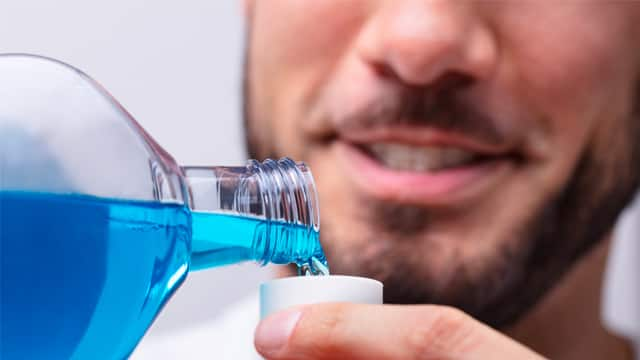What is Dental Plaque?
Plaque is a sticky material that continually forms on your teeth, especially after snacks, meals, and drinks. This thin film contains bacteria, also known as dental germs, that feed on the sugars and starches in your diet. The bacteria then release acid, which can cause a number of dental problems if plaque is left to build up.
Plaque Build-Up: Risk Factors
Risk factors for dental plaque include:
- Improper dental hygiene
- A diet high in sugary or starchy foods or drinks
- A medical history of radiation therapy
- Smoking or using tobacco products
- Dry mouth
Plaque Gets Tougher to Beat
You can prevent the dental and health problems associated with plaque build-up by removing it regularly. This is best accomplished through a dental routine that includes brushing and cleaning between your teeth with floss or other interdental cleaners.
It’s crucial to stay on top of plaque build-up because if it’s not removed, plaque will harden into tartar. Tartar contributes to gum disease and requires the help of a dental professional to remove it properly.
Plaque Removal: What Happens if You Don’t Do it Properly?
If you don’t remove plaque properly or often enough, plaque bacteria (or dental germs) can contribute to serious oral health conditions such as:
- Tooth decay and cavities
- Tartar build-up
- Weakened enamel
- Tooth infection
- Tooth loss
- Gum disease (gingivitis and periodontitis)
- Pain or bleeding when brushing or flossing
- Bad breath
Gum Disease
Gum disease (also known as periodontal disease) may go undetected as it’s typically painless. Despite this, it can cause serious dental and health problems and should be taken seriously, as it will get harder to treat as it progresses.
Gum Disease Stages
There are two main stages of gum disease:
- Gingivitis. In the early stage, this form of the disease can cause your gums to become inflamed, red, or swollen. You may also experience bleeding or pain when brushing or flossing. These symptoms are typically reversible through proper dental care and diet.
- Periodontitis. This advanced form of gum disease can cause tissue and bone loss, and you may experience it even if you’re otherwise healthy. At this level of progression, your teeth may loosen, and the pain or discomfort may progress.
Because it can be challenging to recognize or diagnose gum disease on your own, it’s a great idea to schedule regular visits to your dental professional.
Treatment and Prevention
When it comes to plaque, treatment and prevention overlap greatly. The best method to prevent conditions like gum disease and tooth decay from developing or worsening is proper dental hygiene. This includes healthy brushing and interdental cleaning habits, a balanced diet, and regular visits to your dental professional.
Tartar, gum disease, cavities, infection, and tooth loss will require your dental professional's help to treat. To avoid this, it’s vital to consume a healthy diet and practice a dental routine that thoroughly removes plaque before it causes problems in the first place.
How to Prevent Plaque Build-Up
- Gently clean your teeth for two minutes twice daily using a soft-bristled brush
- Clean between your teeth once a day using a flossing device or interdental brush
- Use toothpaste, mouthwash
- Avoid sugary and starchy items in favor of a balanced diet
- Limit snacking between meals
- Chew sugar-free gum or consume dairy products to promote saliva production that helps protect your mouth
- Medications to increase saliva production may be helpful if you suffer from dry mouth
- Use antibacterial mouthrinse after meals or brushing to help prevent gum disease
- Schedule regular visits with your dental professional
Dental plaque is connected to numerous dental conditions, some of which are severe. Your best bet is to prevent problems from getting worse or happening in the first place by practicing proper dental hygiene and a balanced diet. By visiting your dental professional regularly, you'll be making a great choice for your health and helping to prevent serious issues down the line.
This article is intended to promote understanding of and knowledge about general oral health topics. It is not intended to be a substitute for professional advice, diagnosis or treatment. Always seek the advice of your dentist or other qualified healthcare provider with any questions you may have regarding a medical condition or treatment.
ORAL HEALTH QUIZ
What's behind your smile?
Take our Oral Health assessment to get the most from your oral care routine
ORAL HEALTH QUIZ
What's behind your smile?
Take our Oral Health assessment to get the most from your oral care routine
Join Us
Get the best of your oral health routine and take it to the next level with expert advice, recommendations, products and solutions and special offers.
Join Us
Get the best of your oral health routine and take it to the next level with expert advice, recommendations, products and solutions and special offers.















